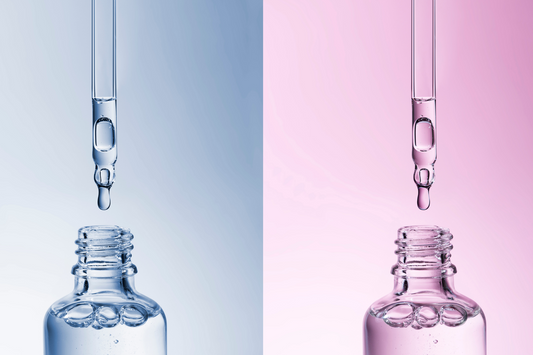If you’ve recently stopped using birth control and then happened to find increased hair loss afterwards, you might be wondering if your decision to stop using birth control had something to do with it. In this article, we’ll discuss whether it’s normal to see hair loss after stopping birth control, the causes associated with this specific type of hair loss, and ways to deal with it (many of these same tips will help even for those who have never used birth control!)
Is hair loss after stopping birth control normal?
Currently, there are no studies demonstrating that the majority of women experience hair loss after stopping birth control, so it is not a cause for long-term concern. Hair loss after stopping birth control is most likely caused by a hormonal imbalance; contraceptives like birth control affect your body by increasing the hormones progestin and estrogen. These heightened hormone levels make your body incorrectly believe it’s pregnant.
However, changes in these same hormones can cause other changes in your body, including hair loss due to heightened estrogen levels (we’ll go into the specifics of the relationship between hormones and hair loss in the next section of this article).
The good news is that any increased hair loss after stopping birth control should be temporary as your body adjusts and returns back to its normal levels of estrogen. But this should last no longer than three months. If you experience hair loss far beyond three months, then the likely culprit is not stopping birth control itself. In these rare instances, it is important to consult your doctor or a medical professional.
Hormones and hair loss after stopping birth control
Birth control causes hormonal changes that can trigger hair loss. For those both starting and stopping birth control, the hormone progestin in particular is oftentimes the culprit because some forms of progestin triggers androgenic (sex hormone-related) activity - which can result in the production of DHT, or dihydrotestosterone. DHT can cause hair loss after stopping birth control by causing more hairs to enter and stay in the shedding phase.
Additionally, especially for women who have been using birth control for a long period of time and suddenly stop, the hormonal shock caused by this change can also cause hair loss. This hair loss phenomenon is called telogen effluvium, which can also be caused by various factors other than stopping birth control as well, including large amounts of stress, or traumatic events.
Treating hair loss after stopping birth control
Noticing and dealing with hair loss after stopping birth control can be difficult, but there are so many simple things, small lifestyle tweaks that you can do to minimize hair loss. Here are some ways that you can address hair loss after stopping birth control:
- Eating a healthy, well-balanced diet: Consuming foods with nutrients like antioxidants (compounds that can “slow down” aging in cells) will strengthen the health of your hair follicles and help prevent hair loss after stopping birth control. Foods with plenty of antioxidants include spinach, strawberries, broccoli, garlic, and artichokes. Learn more about dietary supplements and nutraceuticals here.
- Avoiding heat and other chemical treatments on your hair: The NIH linked heat and chemical treatments such as dying and perming to increased hair loss. Consider avoiding these procedures to help prevent hair loss after stopping birth control, particularly during a time when the body is undergoing hormonal changes.
- Exercising regularly: Telogen effluvium, a hair loss phenomenon we mentioned earlier, is caused by stress, and regular exercise has been proven to reduce stress. The National Health Service recommends at least 150 minutes of moderate exercise a week, or 75 minutes of vigorous exercise a week.
Conclusion
Hair loss after stopping birth control is common, but not impossible to fix. While it can be difficult to deal with this increased hair shedding, we hope you take our suggestions to treat it. If you’d like to consider a hair serum solution to stay ahead of hair thinning or hair loss, consider Revela’s Hair Revival Serum! By “reawakening” dormant hair follicles using our breakthrough ingredient ProCelinyl, the Hair Revival Serum approaches hair health directly and helps to improve the appearance of thicker and fuller hair.
Sources
- https://www.philipkingsley.com/hormonal-contraceptives-and-hair-shedding
- https://www.ncbi.nlm.nih.gov/pmc/articles/PMC3390338/
- https://www.medicalnewstoday.com/articles/can-birth-control-cause-hair-loss
- https://www.healthline.com/health/birth-control/birth-control-and-hair-loss
- https://www.hshairclinic.co.uk/hair-loss/understanding-hair-loss/female-hair-loss/birth-control
- https://www.stjohns.health/documents/content/top-20-foods-high-in-antioxidants.pdf
- https://www.webmd.com/skin-problems-and-treatments/hair-loss/effluviums
- https://www.ncbi.nlm.nih.gov/pmc/articles/PMC3229938/
- https://www.ncbi.nlm.nih.gov/pmc/articles/PMC6536904





